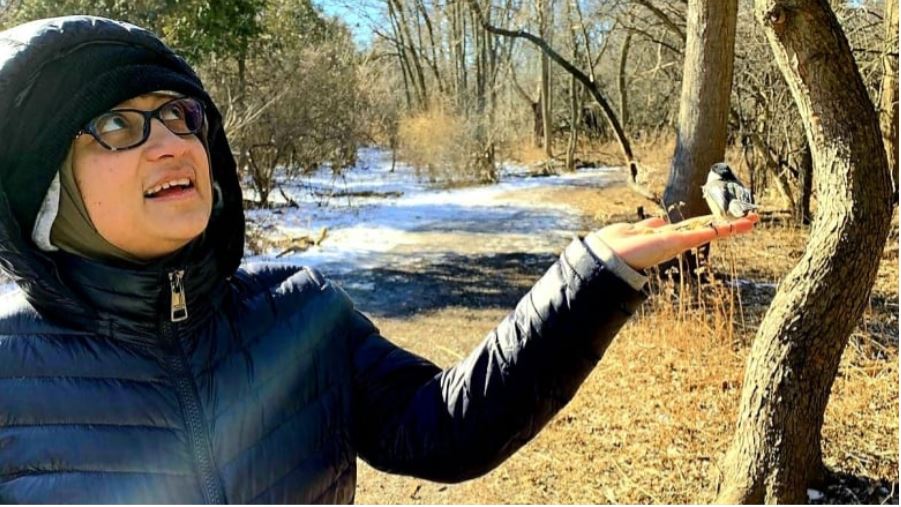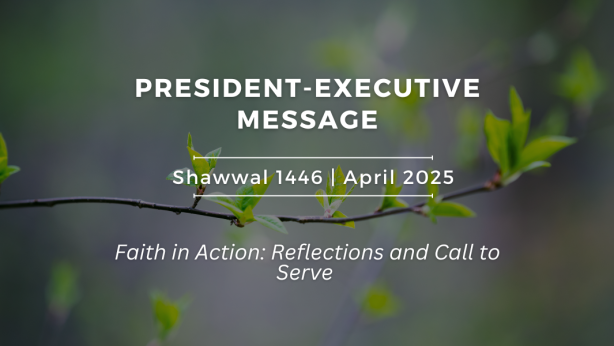Protecting nature, act of faith: Muslim women are leading the charge on climate activism

Researcher Memona Hossain says faith can be an asset for environmental activism
In describing our connection as human beings to the natural world, it’s natural to turn to our five basic senses. But for Memona Hossain, our relationship goes beyond our sense of touch, taste, smell, sound and sight to include a psychological bond.
“If we think about senses as being those things that we perceive our surroundings with and that help us make sense of our surroundings, there’s our sense of hope, our sense of love, our sense of fear, our sense of belonging. All of these things drive us,” said Hossain.
Hossain is a PhD student in Applied Ecopsychology with Project Nature Connect through Akamai University. Her research explores what drives climate activists in their work and she has found that faith can play an important role.
“I am a Muslim woman and I see myself as a Muslim activist. And so part of that is the God consciousness, of being conscious of Allah at all times and being conscious of that in my actions on a day to day basis,” said Hossain in an interview with CBC Tapestry host, Mary Hynes.
As part of her efforts to understand how faith fits into climate action, Hossain interviewed over 60 Muslim women around the world. She wanted to know how they lead and engage with climate change and climate action in their communities, and specifically asked how they connect Islam to their work. While the women’s answers were varied, one theme that emerged was the notion of what it means to be khalifa.
“It is said in the Qur’an that human beings have been entrusted as Khalifa, which is a sacred entrustment, a law given to humans to support and preserve all of the earth and what is in it,” said Hossain, adding that much of the work the women she spoke to were doing was guided by their faith tradition.
“One thing that many of them said to me was this Hadith, which is a prophetic saying or tradition, which is that if the day of judgment were coming on you and you know that it’s happening and you have a small seedling in your hand and you are about to plant it, continue to plant it,” she said.
Hossain said the women drew inspiration from this hadith, particularly with its “themes, such as continuing with hope, continuing to work, continuing for something beyond yourself and truly believing in that, and knowing that these are the types of actions that you want to be leaving this world doing.”

Muslim climate activism around the world
One of the women Hossain interviewed is Hindou Oumarou Ibrahim. Ibrahim is part of a pastoralist community of fishers and farmers that rely on the fresh waters of Lake Chad. Climate change has been a factor in the shrinking of Lake Chad and has led to social upheaval.
“Over the last few decades, Lake Chad has actually shrunk in size by 90 per cent. So only 10 per cent of the lake that was there just a few decades ago remains. And so this has a huge impact on her community,” said Hossain.
Ibrahim is advocating for her community at international levels, bringing attention to the large-scale humanitarian crisis around the Lake Chad Basin, which according to the United Nations is among the most severe crises in the world. At a local level, Ibrahim focuses on education; Hossain says this sometimes includes addressing the community’s beliefs about God and as they relate to climate change.
“Particularly in her community, people understood this phenomenon as God being upset at them. And so what they would do is engage in charity-giving because they wanted God not to be upset with them and to rectify the situation,” recounted Hossain.
“And so [Ibrahim] would sit with members of her community and explain that, you know, this is not your fault. This is happening because of behaviours of people in other parts of the world. And so kind of connecting all of those analogies between the local and the broader context is some of the work that she does.”
According to Hossain, once you get past the idea that God is punishing you, the presence of faith in climate action becomes empowering rather than a source of fear. The women she spoke with talked about their climate action work as an act of faith. Their belief that every element on earth is a gift from Allah inspires them to see all things on earth connecting and communicating together.
“And so [all things] glorify God, they pray to God, they communicate with one another. We are part of that. And so one woman said to me that, you know, if every entity is praying to God, glorifying God, we need to really be aware of that. And protecting nature becomes a form of worship ultimately.”
Written and produced by Kim Kaschor.
To read original article click here


